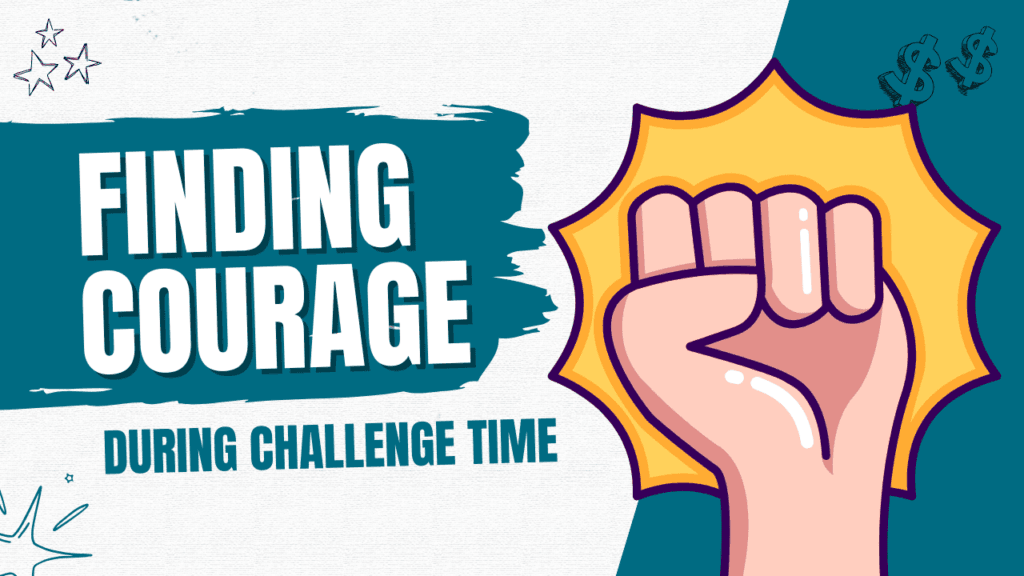Facing challenges is an inevitable part of life, especially for entrepreneurs and individuals striving for personal and professional growth. Learning ways to find your courage during challenging times is not only essential for overcoming adversity but also for building resilience that lasts a lifetime. Courage doesn’t mean the absence of fear; it means acting in spite of it. By embracing practical strategies, you can cultivate strength and determination to navigate life’s toughest moments successfully.
In this article, we’ll delve into practical strategies to help you find your courage and thrive during adversity. These proven techniques will empower you to face life’s uncertainties with strength and determination.
Why Finding Courage is Crucial
Life’s challenges often push us to the brink, testing our resolve and mental strength. Whether you’re dealing with personal setbacks, professional failures, or unforeseen obstacles, finding courage helps you:
- Maintain a positive mindset.
- Take meaningful action despite fear.
- Turn challenges into growth opportunities.
Building this emotional fortitude doesn’t happen overnight, but with consistent effort, anyone can learn ways to find their courage during tough times.
2. Cultivate Self-Compassion
Self-compassion is often overlooked, yet it plays a crucial role in building resilience. During challenging times, it’s easy to criticize yourself for perceived failures or shortcomings. However, being gentle with yourself can help you recover faster and think more clearly.
Remind yourself that struggles are a natural part of the human experience. Instead of dwelling on mistakes, focus on what you’ve learned from the situation. Treat yourself with the same kindness and understanding you’d offer a close friend.
To practice self-compassion, consider daily affirmations, mindfulness exercises, or even taking short breaks to recharge your mental energy.
3. Seek Support and Guidance
One of the best ways to find your courage during tough times is by relying on a support network. No one can face life’s challenges alone, and seeking help is not a sign of weakness—it’s a demonstration of strength.
Surround yourself with people who uplift and inspire you. This could include friends, family, colleagues, or mentors who offer emotional support and constructive advice.
Additionally, professional help, such as therapy or coaching, can provide valuable tools to navigate particularly difficult periods. Building connections creates a safety net, enabling you to face challenges with confidence.
4. Set Realistic Goals
Big problems can feel overwhelming, but breaking them down into smaller, actionable steps makes them more manageable. This approach helps you maintain focus, stay organized, and gradually build momentum.
For example, if you’re starting a new business, instead of focusing on the end goal of launching, break it into steps: research, planning, funding, and execution. Celebrate each milestone, no matter how small, to boost your confidence.
By setting realistic and achievable goals, you’ll find it easier to stay motivated and courageous, even when obstacles arise.
5. Embrace Change and Adaptability
Adaptability is one of the most powerful ways to find your courage during uncertain times. Life rarely goes according to plan, and the ability to pivot is a hallmark of resilience.
When faced with change, view it as an opportunity rather than a setback. Reflect on how this new situation can contribute to your growth or offer unexpected benefits.
For example, if you lose a job, consider it a chance to explore a career path you’re passionate about. By reframing challenges, you not only find courage but also foster innovation and creativity.
Bonus Tips:
Build Resilience with Healthy Habits
Incorporating healthy habits into your daily routine supports emotional strength and well-being. Exercise, nutritious food, and adequate sleep help reduce stress and improve mental clarity. Meditation or yoga can also boost emotional resilience, making it easier to tackle challenges with courage.
Harness the Power of Your Inner Voice
Your inner dialogue has a significant impact on your mindset and confidence. Negative self-talk can paralyze you with doubt, while positive affirmations can empower you to take action.
Replace statements like “I can’t handle this” with “I’ve faced tough situations before, and I can do it again.” Reflect on past successes to remind yourself of your resilience.
Daily affirmations, gratitude journaling, or simply noting three things you’ve done well each day can help rewire your brain for positivity.
Conclusion:
Finding courage during challenging times is a transformative journey that empowers you to navigate adversity and seize opportunities. By acknowledging your fears, practicing self-compassion, seeking support, setting realistic goals, embracing adaptability, and cultivating positive self-talk, you can discover untapped reserves of strength within yourself.
Remember, courage isn’t about eliminating fear—it’s about acting in spite of it. With consistent effort, these ways to find your courage can lead to profound personal and professional growth.
Start implementing these strategies today, and witness how they pave the way for a more resilient, courageous version of yourself.


